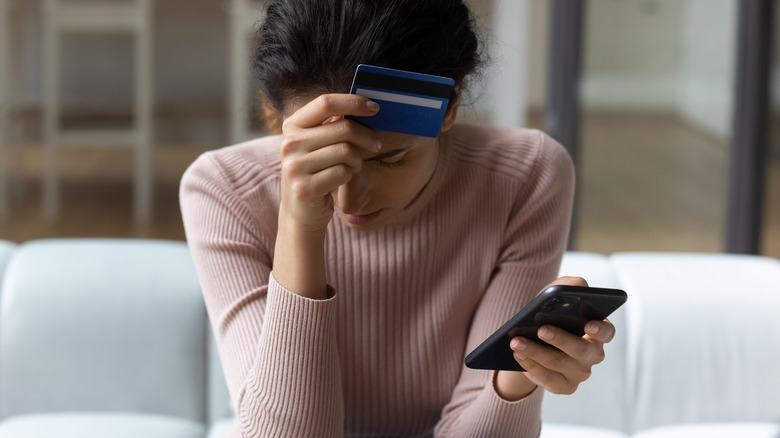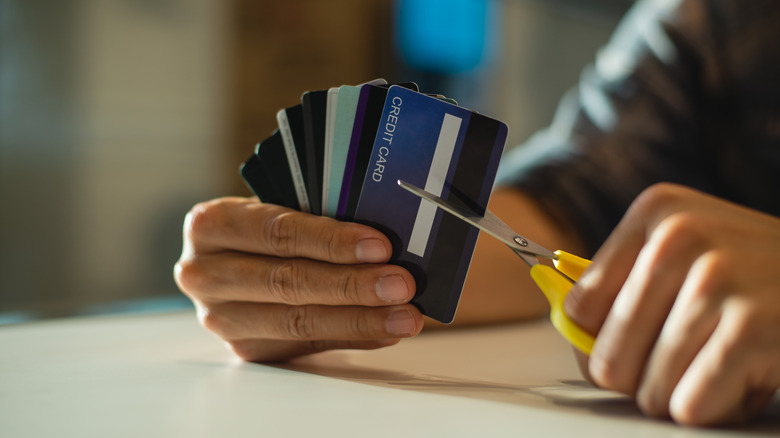A 'No-Buy Month' Can Help You Curb Your Shopping Addiction
Treat yourself, they said. You deserve it, they said. Many of us tend to turn to retail therapy when we reach a certain milestone or want a pick-me-up after a bad day. Few things can instantaneously lift our moods like a big box of goodies arriving on our doorsteps. As it turns out, this is because shopping has a major impact on our mental health, which drives us to want to do it over and over again.
As Lee Chambers, an environmental psychologist and well-being consultant, explained to Psychreg, "From a cultural perspective, we have been conditioned to see shopping as a reward, either an investment in ourselves or for the satisfaction of others. " He continued, "Shopping is likely to activate the nucleus accumbens in our brain, releasing dopamine and motivating us to repeat the behavior."
But sometimes, we go overboard, even if it's not something we really need or even want. And this can be dangerous since it can lead to full-blown shopping addiction. When you get to a point where you find it tough to resist making a purchase, you should take it as a sign to step back and take stock of your behavior. You may even need to take immediate action, which could mean setting hard limits, including going on a no-buy month.
What is a no-buy month?
If you've struggled to set a clothes-shopping budget that works for you, have accumulated products you don't need, and now find yourself teetering on the edge of financial trouble, it makes sense to put a hard stop to it all and impose a buying ban on yourself. Some people like to start small and begin with a no-buy month, which is exactly what it sounds like — a whole 30 days of focusing on spending less and only buying things you need to survive, like food.
Jen Smith, the founder of Modern Frugality, told Apartment Therapy that to ease into a no-buy month, you should first identify what you're overspending on, and then tackle each item individually rather than trying to go cold turkey. "When you focus on one thing at a time, you have more brain energy to reflect on why you're overbuying and figure out creative ways to meet the desire without spending," she noted.
If you have issues with avoiding eating out at restaurants, Smith suggests evaluating your expenditures to get to the root of the problem. "Start with your biggest problem area, plan how you're going to tackle it, and spend a month focusing on how to improve it in a way that lasts," she said. If you slip up along the way, don't be too hard on yourself. Consider it a minor setback, remind yourself of your goal, and keep going.
Other ways to curb compulsive shopping
The first step to kicking your compulsive shopping habit to the curb is recognizing that you have a problem in the first place. You can't make progress if you don't accept that there's an issue. Aside from imposing no-buy months, a good strategy is to dodge things that make you want to shop in the first place. Think of your favorite store's Instagram account or email newsletters alerting you to sales.
Hit the unfollow and unsubscribe buttons to lessen your exposure to shiny things and avoid the temptation of buying items you don't need. Another trick is to wait a few days before taking the plunge. You may find that it's not something you really want, and your emotions just got the better of you. Setting limits can help, too, so that you can still scratch that shopping itch without going overboard.
You could also focus your energy elsewhere, ideally on things that contribute to your personal development. "Try to convert your goal of control to the excitement of a new, positive behavior — like working out or eating healthy," Dr. Scott Bea, PsyD., a clinical psychologist, advised the Cleveland Clinic. "You'll be surprised at how happy you can feel working towards those positive results, too."


